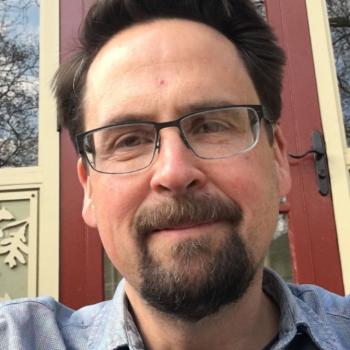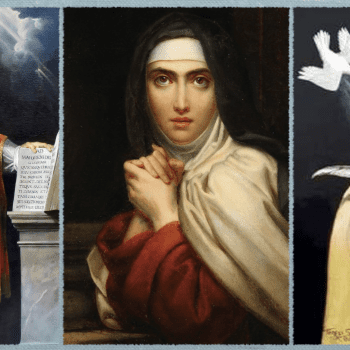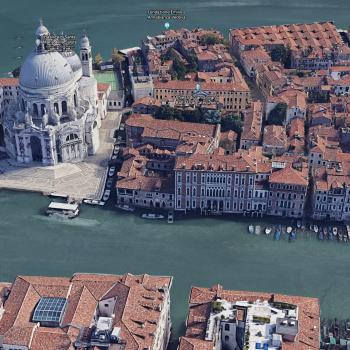It’s been over a month now since the World Health Organization has acknowledged that COVID-19 is a pandemic. As of today (4/13/20), over 22000 Americans and 116,000 people worldwide have died from the virus; and those numbers will certainly rise in the days and months to come. While this is not the plague (which decimated over a third of Europe’s population in one terrible four-year period), it’s far worse than the ordinary flu or even the swine flu. Almost everyone’s lives have been affected, many people have lost their jobs or seen their income drop, and many others are struggling with the fear and uncertainty that any pandemic can bring.
For many of us, restricting our mobility and maintaining social distance is the most practical thing we can do to help slow down the spread of the disease. On the surface that sounds like a small thing to do, and yet in reality it is difficult. Some people have unhappy or unhealthy home environments due to toxic relationships in their lives; some live alone and are dealing with profound feelings of isolation and loneliness; and even those who are blessed with happy marriages or families or other relationships may feel the stress of confinement and a sense of not being in control.
I’m certainly not the first person to say this, but perhaps those of us who already are interested in contemplation and mystical spirituality can use this time profitably as a kind of “ad hoc monastery,” a temporary cloistered environment where we might find time to read, reflect, pray, meditate, and embrace silence.
With this in mind, I thought it might be interesting to consider the spiritual writings of several great mystics of the past, all of whom lived during times of epidemics or pandemics. I’ve pulled figures from three periods of history: first, from those who lived in mid-fourteenth century Europe and so would have experienced, or at least had knowledge of, the horrors of the plague. The second group lived during a later plague epidemic, what Daniel Defoe called “the plague year” of 1665-1666 in England; and finally, a group of twentieth century mystics, all of whom lived during the deadly Spanish Flu pandemic of 1918-1920.

In drawing together this list of mystical writers, I think it’s important to note that they do not write about their experience living during a pandemic. In fact, to the best of my knowledge (I could be wrong), none of those writers really address the question of how to survive/thrive during a pandemic. Which of itself might be instructive: there is more to life than protecting ourselves against infectious diseases, important though that most certainly is.
It seems to me that if we could gather these twelve folks together and ask them, “What advice to you have for surviving a pandemic?” They would say things like, “Trust in God, be careful, pray daily, live humbly, be kind to others, strive to manifest the fruit of the spirit.” We can add the wisdom of our age, including shelter in place, maintain social distance, and wash your hands for 20 seconds!
There’s more to embracing the mystic life than just reading the mystics. But hopefully these folks can be an inspiration for us during this extraordinary time (or any time).
- John Ruusbroec (1293-1381), author of The Spiritual Espousals and Other Works. This Flemish priest wrote highly evocative, radical reflections on how the practice of contemplative prayer leads to a sense of embodied union with God.
- Gregory Palamas (c. 1296-1359), author of The Triads. Eastern Orthodox authority on hesychasm — the mystical practice of entering contemplation through the recitation of the Jesus Prayer (“Lord Jesus Christ, Son of God, have mercy on me”).
- Anonymous author of The Cloud of Unknowing and The Book of Privy Counsel (c. 1375). Perhaps the most important western medieval document on the practice of silent prayer: Centering Prayer is based on teachings found in this book.
- Walter Hilton (d. 1396), author of The Scale of Perfection. A brilliant psychologist of the contemplative life; Hilton instructed his reader (a cloistered nun) to persevere in prayer so that God may restore the Divine image and likeness in her.
- Julian of Norwich (1342-c. 1416), author of The Showings of Julian of Norwich. This masterpiece of the mystical imagination reveals how Divine Love infused Julian with a spirituality of unshakeable optimism. “All shall be well,” wrote this woman who lived through the worst visitation of the plague.
- George Fox (1624-1691), author of The Journal of George Fox. Founder of the Quakers, George Fox proclaimed a spirituality of deep equality, radical nonviolence, and encountering the Divine within through the communal practice of silence.
- Thomas Traherne (c. 1636-1674), author of Centuries of Meditation. Best known as one of the metaphysical poets, Traherne also wrote a collection of meditations in which he celebrates God “perfecting and completing our bliss and happiness.”
- Evelyn Underhill (1875-1941), author of Practical Mysticism. An important voice in 20th century spirituality, Underhill advocated the mystical life for all people, not just monks or nuns or priests. She saw contemplation as an art we can all enjoy.
- Pierre Teilhard de Chardin (1881-1955), author of Hymn of the Universe. Renowned Jesuit scientist, Teilhard wrote eloquently of the interbeing of science and spirituality. “The Mass on the World” reveals how nature is the ultimate altar.
- Edith Stein (1891-1942), author of The Science of the Cross. Stein survived the years of the Spanish flu but was killed by the Nazis. A philosopher by training, she embraced the Carmelite mysticism of St. Teresa of Ávila and St. John of the Cross.
- Howard Thurman (1899-1981), author of With Head and Heart. An African-American, Baptist mystic who deserves far greater recognition than he has received. His work is poetic, deeply contemplative, and seamless integrates spirituality and action.
- Caryll Houselander (1901-1954), author of The Reed of God. This salt-of-the-earth British Catholic mystic created the ultimate book for Advent in her meditations on the spirituality of Mary. Read it now as we await the end of the pandemic.
I hope you enjoy these books. But remember: don’t just read about meditation and contemplation. There comes a time when you need to put the book down — and pray!













